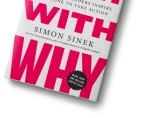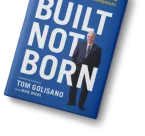
Writing a memoir about abuse is one of the most courageous and healing journeys an individual can undertake. It allows survivors to process complex emotions, reclaim their narrative, and help others who may be experiencing similar pain. But transforming deeply personal trauma into a compelling, readable story requires care, reflection, and structure.
Whether your goal is to share your story publicly or privately, this guide walks you through each stage of writing a memoir about abuse—emotionally, ethically, and practically. If you’re unsure where to begin, or if writing feels overwhelming, you’re not alone. Many individuals partner with professional services like Estorytellers to bring their stories to life with support and sensitivity.
Before you write your first word, it’s important to ask: Am I ready to tell this story?
Need Help Writing Your Memoir?
Our experienced ghostwriters can help you write your story with compassion, care, and confidentiality.
Explore Ghostwriting ServicesIs It the Right Time to Tell Your Story?
Before diving into your memoir, pause and assess whether you’re emotionally ready to revisit the pain. Writing about abuse can reopen emotional wounds, making the process both therapeutic and triggering. It’s crucial to understand that just because something happened to you doesn’t mean you’re obligated to share it until you’re prepared.
Ask yourself:
- Am I emotionally stable enough to revisit these memories?
- Do I have a support system in place if writing becomes too overwhelming?
- Am I writing from a place of healing or still deep in trauma?
There’s no “perfect” time to write a memoir about abuse, but emotional readiness will help you write with clarity and compassion rather than reactivity or distress.
For many, working with professionals—such as therapists, writing coaches, or ghostwriting services—can provide structure and emotional distance, allowing the story to unfold safely and powerfully.
If you’re still unsure whether you’re ready, consider reading this helpful guide on how to start writing a book about your life to explore your motivations more deeply.
Clarify Your Purpose and Audience
Understanding why you’re writing your memoir is just as important as what you’re writing. Abuse memoirs often serve multiple purposes: to heal, to raise awareness, to hold abusers accountable, or to inspire others. But defining your core purpose will shape the tone, content, and structure of your book.
Ask yourself:
- Is this primarily for personal healing?
- Do I want to educate others or spark social change?
- Am I writing to support other survivors?
Your answers will influence the voice and style of your memoir. A deeply introspective, healing narrative may differ in tone from a memoir intended to spark activism or policy change.
It’s equally important to define your audience:
- Are you writing for fellow survivors?
- For a general audience unfamiliar with abuse?
- For a specific demographic (e.g., young women, childhood survivors, professionals)?
When you know who you’re speaking to and why, your memoir becomes more focused, meaningful, and impactful.
To understand how memoirs differ from other life stories, you can read this detailed comparison between memoir and autobiography. It will help you choose the right format based on your intent.
If you’re feeling stuck or overwhelmed, partnering with Estorytellers can help you refine your story, structure your message, and ensure it speaks to the audience you care about most.
Ready to Publish Your Memoir?
From layout to ISBNs to printing—we’ll handle everything so your memoir reaches the world professionally.
Get Publishing SupportStructure Your Memoir Effectively
Unlike an autobiography, which typically follows a chronological timeline of an entire life, a memoir focuses on a particular theme or period—in this case, your experience with abuse and its emotional journey. Structuring your memoir with care helps readers stay engaged and absorb your message without feeling overwhelmed.
Choose the Right Structure:
There is no one-size-fits-all format, but here are three commonly used structures for abuse memoirs:
- Chronological:
Start from the earliest memory and progress toward healing. This approach works well if the abuse occurred over a long period. - Thematic:
Organize the memoir by topics or recurring themes—such as fear, isolation, breakthrough, resilience. This offers flexibility and depth. - Non-linear:
Weave present reflections with past experiences. This approach allows readers to see your growth and healing while contextualizing trauma.
Focus on Key Moments:
Rather than narrating every detail, focus on pivotal scenes—moments that shaped your understanding, pushed you to break silence, or transformed your life. Your goal is not to recount every incident but to convey truth and meaning.
Include Transformation:
Readers need to see not only what happened but how it changed you. Show your emotional and psychological growth—what you’ve learned, what you’ve overcome, and who you are today.
If you’re unsure how to build this structure into a book, this guide on how to start writing a book will walk you through foundational steps. You can also explore book publishing and printing options once your manuscript is ready.
Need help organizing your story? Estorytellers can assign a professional ghostwriter to help structure and write your memoir while preserving your unique voice.
Want to Tell Your Story Safely?
We help survivors shape their memoirs with emotional care, legal discretion, and narrative strength.
Talk to Our TeamWriting About Others With Sensitivity
Writing a memoir about abuse often involves referencing other individuals—family members, partners, friends, or institutions. While your story is your own, handling others’ identities with care is both an ethical and legal necessity.
Use Pseudonyms When Needed
If naming someone could cause emotional harm, invite legal issues, or damage reputations, consider using pseudonyms. You can even state in a note at the beginning of your memoir that names and identifying details have been changed to protect privacy.
Stick to Your Truth Without Defaming Others
It’s essential to differentiate between telling your truth and accusing someone without evidence. Focus on what happened to you—your feelings, your perceptions—rather than assigning definitive blame or making unverifiable claims.
Balance Honesty with Empathy
Even if someone hurt you, portraying them with nuance can make your story more powerful. Abuse is often the result of generational trauma or complex circumstances. You can acknowledge harm without dehumanizing.
Legal Considerations
Publishing content that identifies others, especially in a negative light, can lead to defamation claims—even if your story is true. If you’re unsure, consult a legal advisor or work with experienced professionals who understand the balance between storytelling and safety.
Need help navigating these complexities? Estorytellers ensures your story is shared truthfully and powerfully—without exposing you to legal or emotional risks. From story development to final edits, our team handles your memoir with care and confidentiality.
Once your manuscript is finalized, our book publishing and printing service ensures it reaches readers ethically and professionally.
Not Sure How to Begin Your Memoir?
We’ve helped hundreds of first-time authors outline, write, and publish their personal stories.
Get Expert HelpPrioritize Emotional Honesty Over Graphic Detail
When writing about abuse, it’s natural to feel the urge to be raw and detailed—especially when validating your experience. However, the most powerful memoirs aren’t necessarily the most graphic. Instead, they prioritize emotional honesty: how you felt, what you believed, how you changed.
Why Less Can Be More
Overly explicit details can overwhelm readers and even retraumatize you in the process. Focus instead on:
- How moments of abuse shaped your thoughts and emotions
- How you coped or responded
- What impact it had on your relationships, identity, or choices
This helps readers connect with your journey rather than become stuck in the horror of the event.
Show Reflection and Growth
Let your memoir reflect not just what happened, but what it meant. Abuse memoirs become impactful when they balance pain with insight, offering hope or understanding.
You’re not just recounting trauma—you’re shaping meaning out of it. This makes your story relatable, even to those who haven’t experienced abuse firsthand.
Respect Your Boundaries
You don’t have to share everything. Choose what serves the story and what you feel emotionally safe disclosing. If a particular event still feels too raw, it’s okay to leave it out or summarize it briefly.
If you feel stuck between honesty and exposure, working with a professional ghostwriter from Estorytellers can help you find the right balance. They ensure your voice remains authentic while protecting your emotional wellbeing.
When your story is ready to reach the world, our publishing team can help shape it into a professional, market-ready manuscript.
Get Support—You Don’t Have to Do This Alone
Writing a memoir about abuse is deeply personal—but it doesn’t have to be a solitary process. In fact, many powerful memoirs are the result of collaboration, where survivors lean on experienced professionals who understand the emotional, structural, and creative demands of such a story.
Why You Need Support
- Emotional grounding: A therapist or counselor can help you process resurfacing trauma as you write.
- Structural clarity: A writing coach or ghostwriter can help organize your narrative to keep it focused and impactful.
- Creative execution: Editors, proofreaders, and publishing consultants ensure your story is polished and reader-ready.
Ghostwriting as a Healing Partnership
If the writing process feels too heavy—or if you don’t feel confident in your writing skills—you can still share your story through a trusted ghostwriter. At Estorytellers, our ghostwriters specialize in memoirs, including trauma-focused stories. They work closely with you to ensure your voice, truth, and message come through authentically.
Working with a ghostwriter doesn’t mean giving up ownership of your story. On the contrary, it can help you tell it more clearly, more powerfully, and with the support you deserve.
When You’re Ready to Publish
Once your manuscript is complete, our book publishing and printing team ensures that your work is formatted, designed, and distributed with professionalism and care—whether you want to self-publish, sell digitally, or print limited copies for private use.
You’re not alone in this process. There’s a team ready to walk beside you every step of the way.
Prepare for the Publishing Journey
Once your memoir is written—whether independently or with help—it’s time to think about publishing. This phase requires a different mindset: you’re no longer just a survivor and writer, but a communicator, preparing to share your story with the world.
Understand Your Publishing Options
- Self-Publishing:
Gives you full control over your manuscript, cover design, pricing, and distribution. It’s ideal for memoirs that are personal, niche, or time-sensitive. - Traditional Publishing:
Often harder to break into—especially for debut authors without a large platform. Traditional publishers may also want editorial control or request revisions that alter your original voice. - Hybrid or Assisted Publishing:
A middle ground that offers support with editing, formatting, and marketing while allowing you to retain rights and royalties.
At Estorytellers, we offer a self-owned publishing model. You retain 100% of your copyright and royalties while we handle everything from ISBN assignment and interior layout to distribution on platforms like Amazon and Kindle.
Key Steps Before Publishing
- Professional Editing: Even emotionally powerful stories need polishing to enhance readability and flow.
- Formatting & Cover Design: A professional presentation helps readers take your story seriously.
- ISBN & Copyrights: These are essential for protecting your work and tracking sales.
Our end-to-end publishing services make this process simple and seamless, so you can focus on what matters—your message.
Sharing and Marketing Your Memoir Safely
Publishing your memoir is just the beginning. If your goal is to reach readers, raise awareness, or build a public platform, you’ll need to share your story thoughtfully. Memoirs about abuse can be powerful tools for advocacy—but they also open you up to public attention, feedback, and scrutiny.
Define What You’re Comfortable Sharing Publicly
Even after your book is published, you don’t have to share every detail in interviews or promotions. Decide in advance what topics you’re open to discussing, and which ones are off-limits.
Build Your Author Presence with Boundaries
An author website, curated social media presence, or selective interviews can help promote your book without overexposing your personal life. Always protect your privacy—use author photos, bios, or contact methods that feel safe.
Be Ready for Reader Reactions
Not everyone will respond with empathy, but many readers will find healing and inspiration in your words. Prepare emotionally for a range of feedback—praise, questions, even criticism.
If you’re ready to share your story widely, Estorytellers can help you navigate the promotional landscape. Our dedicated book marketing services include personalized strategy, digital campaigns, influencer outreach, and media exposure—designed to help you connect with the right audience without compromising your comfort or safety.
Want Your Memoir to Reach Readers?
Our strategic book marketing plans are tailored for memoir authors who want real visibility and lasting impact.
Learn About MarketingFinal Thoughts: Your Story Matters
Writing a memoir about abuse is not just a literary act—it’s a declaration of survival, courage, and agency. Your story, no matter how painful or complex, has value. It can validate other survivors, inspire healing, challenge silence, and leave a lasting impact.
But remember:
You don’t need to have all the answers.
You don’t need to be fully healed.
You just need to tell the truth as you know it—on your terms.
Whether you write privately, publish independently, or seek help from a trusted ghostwriting team, your story deserves care, clarity, and respect. At Estorytellers, we help survivors bring their memoirs to life with confidentiality, empathy, and professional support—from writing and editing to publishing and marketing.
Your past does not define you—but your story might define someone else’s survival. Write it when you’re ready. Share it when you feel safe. And know that it matters.






























